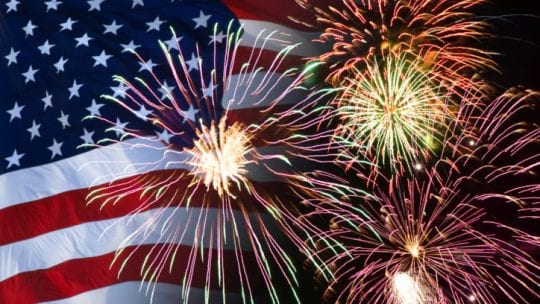
As our nation moves beyond 2020’s pandemic restrictions, Americans will celebrate this 4th of July holiday with renewed exuberance. While our gatherings often define Independence Day, along with foods and spirits, the holiday’s essence is significantly more sobering.
Certainly, we in the United States have much to celebrate. Despite pockets of darkness, we remain a shining light of democracy and hope for the world. Yet, we risk losing our luster unless we address the toxic cloud of disinformation that threatens freedom.
When it comes to defending liberty, muscle and might are typically the tip of the figurative spear. Today, though, given the threats, part of that task also falls to professional communicators. We must become present-day freedom fighters.
While the importance of communication has risen, adding to PR pros’ workload, combatting disinformation is a job we can’t ignore. PR must move beyond disseminating planned messages. It’s our responsibility to help mitigate the noise and bias impeding communication and connections.
Disinformation in History
As we celebrate American history this weekend, it’s notable that spreading false information is far from new. From its beginning, America’s narrative is rife with rumors, conspiracies and outright lies.
For example, misinformation was a vital part of George Washington’s toolkit in the fight for independence. And Samuel Adams, a revolutionary and propagandist, regularly shared exaggerations and falsehoods hoping to destabilize British rule in the Massachusetts colony. His cousin, President John Adams, however, railed against “errors propagated by the press.”
Degree of Difference
What’s happening today, though, is far different. Thanks to a complex list of behavioral, political, economic, communication and media considerations, the 21st century is seeing disinformation industrialized, weaponized, and reproduced at scale.
From domestic and foreign bad actors to technology; from algorithms and new media platforms to media bubbles and media deserts; and from our brains and biases to simple information overload, distraction and inattentiveness, the information environment is more toxic than at any time in history.
This influences our democracy and economy, because false information undermines effective decision-making, the bedrock of democracy and a free market. In addition, it corrodes information channels, undermines trust in individuals and institutions, mutes constructive voices, further divides our communities, fuels anger, hate, and even crime and robs individuals of their rights, dignities, and freedom of expression.
Our world faces a host of challenges, none of which can be addressed without effective decision-making and the authority of evidence. Disinformation may be among the most serious existential threat facing our nation and world.
A Special Responsibility
As communicators, we have a special obligation and duty to address this threat. Our codes of ethics call on us to serve the public good, protect and advance the free flow of truthful information, and adhere to the highest standards of accuracy. Our acumen, training, and expertise arm us with tools to remediate the information ecosystem and protect the freedoms we hold dear.
Data from our partners in the behavioral sciences are clear. Communicators can play a part in slowing disinformation. We can advocate for and share media literacy programs. Moreover, we can participate in and share mind-building games to protect ourselves and others from disinformation. And while speed is vital in PR, we can and should promote a simple pause or nudge before sharing content online.
These are small steps, of course, and larger efforts are underway. Yet July 4th commemorates the culmination of incremental and major activities. PR pros’ contribution to fighting disinformation can hinder the spread of falsehoods and promote a healthier information environment that welcomes diverse voices, civility, and constructive civic engagement.
Michael Cherenson, APR, Fellow PRSA, is EVP, SCG Advertising + Public Relations
